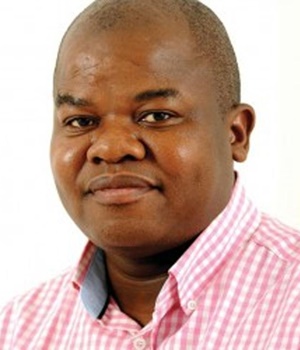
Gauteng Premier David Makhura is very passionate about good governance. He also continually harps on the importance of service delivery, but this is hard to reconcile with the endless service-delivery protests from all corners of the province. It is one thing for him to avow commitment to such when the people who are supposed to be beneficiaries of his passion do not see it reflected in their lives.
But still you cannot fault his sincerity. He acknowledged recently the gap between his pronouncements and the reality of Gauteng citizens, venting his frustration at the slow pace of delivery: “People always complain. They say: ‘You say these things, Premier. Your speeches are nice. We like them, but things are not happening as fast. The premier speeches are great, but a lot of these things are not getting done.’”
Makhura completes his first term next year. Having never been an MEC before, he got a fair sense of how government functions when government representatives who reported to him described him as quite a strict provincial secretary.
When he reflects next year about his five years in office, he would be proud that his efforts to stop corruption are slowly succeeding, although the Life Esidimeni tragedy will overshadow everything he has done or attempted to do in his first term.
He will probably pursue a second term as premier, believing that he will use lessons learnt from the first one to do better. Gauteng residents will decide next year whether he is worthy of a second term. But, much like President Cyril Ramaphosa, it looks as if Makhura’s plans might be in trouble – not from ordinary South Africans – but from his own ANC comrades.
On the weekend of the conference, a video of what looks like a caucus meeting before the voting on Saturday, in which Lebogang Maile disparagingly mentions to those present that they should vote for Makhura, “but just for now”, is followed by howls of disapproval from the room.
Those who supported Maile in the run-up to the conference have been boasting in the aftermath of the election of the provincial executive committee (PEC), that Makhura is outnumbered and he is “in trouble”. They have gone as far as counting that 29 of the 35 members of the PEC are “their” people, who are probably hostile to Makhura.
The allusion is that henceforth, Makhura’s free rein as premier will be kept in check. Instead of just celebrating the impressive inclusion of young people in getting elected to the PEC, there is an added dimension that this spells danger for the premier. Makhura has downplayed the outcome, emphasising unity and the fact there will be no vengeance against anyone who did not support him.
However, this might be a hollow assurance given that, even if he wanted to, the young brigade in the newly constituted PEC would not allow him. But who knows? These may just be the empty bravado of people licking their wounds after failing to elevate Maile as the face of the young blood to deputy chairperson position.
But it is likely more sinister than that. At a time when the party – after the December Nasrec conference – has been preaching unity and a new dawn, it might just be still at the old dawn. For a long time the ANC in Gauteng had projected a face of unity and moral integrity in being the most opposed to the corrupt rule of former president Jacob Zuma.
While differences existed, they never much affected programmes and the operations of the party. But now all of that looks like it is going out the window. Fresh cracks are starting to emerge. You might well ask: based on what? On nothing really, except for lust for power and ambition. There are absolutely no ideological wars in this place. It is really dedela abanye phenomenon (make space for others to start eating as well).
A Botswana politician once characterised it as: Ga lo bolo goja phenomenon (you have been eating for way too long). But a more optimistic diagnosis of what happened would be to say a new life has been injected into the party with the young replacing the old. This has been a campaign of the ANC’s younger generation, who feel the leaders of the biggest opposition parties are youngsters in their late thirties or early forties whereas the governing party’s leaders average 60 or 70. The younger leaders believe that they alone can save Gauteng from being captured by the opposition parties in the elections next year.
But with the opposition parties scoring own goals at a spectacular pace, the threat of the ANC actually losing power has in any case actually started to recede. But what is at its onset is likely new battle lines which are bereft of substantial content but are informed by the almost inevitable struggle for power in politics.




 Publications
Publications
 Partners
Partners























